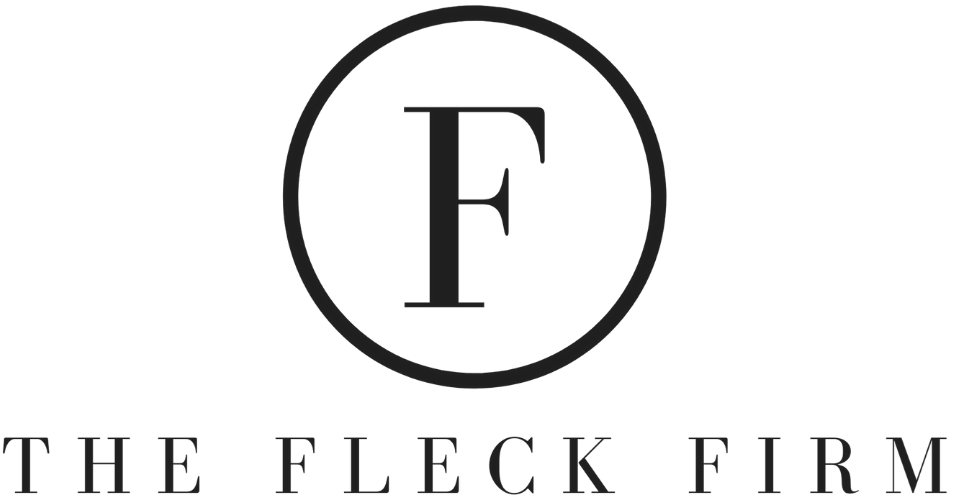Louisville Car Accident Lawyer
If you’re injured because of someone else’s mistake or intentional act, you may have a legal right to compensation for the harm you suffered. These cases cover all types of accidents, but one thing remains the same – get the right attorney to help you and your family get the results you deserve.
Tyler Fleck represents those injured by others. Tyler knows the law, how to negotiate a fair settlement, and how to tell your story to a jury. He knows what to expect from insurance carriers and what to do to make them see that your case is one they should take seriously.
What is Negligence?
The foundation of personal injury cases is the negligence legal theory. It’s also the type of claim that insurance policies cover. They pay for the vast majority of settlements and jury verdicts. Unless the person who harmed you has enough personal assets to cover your claim, insurance coverage will have to make your lawsuit worthwhile.
Negligence is the basis of an insurance claim or a cause of action filed in court. You would accuse the other party of making a severe mistake that caused, at least partly, the accident that harmed you. You, the plaintiff, must show by a preponderance of the evidence (it’s more likely than not) that:
- The defendant owed you a legal obligation or duty (to do or not do something given the situation and the relationship between the two of you)
- The defendant failed to do what needed to be done or did something when not acting at all was the right course of action, breaching that obligation or duty
- That breach was the factual and legal (or proximate) cause of your accident and injuries
- The defendant is required by state law to pay you damages (the harm you suffered measured in dollars) as a result
A personal injury case can cover just about any situation where someone was negligent, and you’re injured. It can be a slippery grocery store floor, a drunk driver, or a multi-vehicle pile-up on an interstate.
Other attorneys take contingent fees of 33% to 50% of your settlement.
We want you to keep more of your money.
Our contingent fee is only 30% on cases settled prior to filing suit.
Two significant issues dominate negligence cases, proving:
- Causation: The other party caused the accident in some way, so is liable for the accident (has an obligation to compensate you)
- Damages: The harm you suffered because of the accident, measured in dollars (what should be the amount you receive as compensation)
These are the two legs personal injury cases stand on. If you can’t prove the two you don’t have a case. You must have strong evidence of both to have a good case that will provide you with a reasonable settlement or jury verdict.
Your case isn’t worth much if:
- You have good evidence showing the other party’s to blame, but you have minor injuries
- You’re seriously injured, but there’s little evidence establishing the other party caused the accident
Most cases are a mix of strengths and weaknesses. Just because you don’t have a textbook negligence case doesn’t mean filing an insurance claim or lawsuit won’t be worth it.
- Showing Causation or Liability
You must show the other party played a role in causing the accident so should be found liable, which should lead to a settlement or award for your damages. How you prove what the other party did, or failed to do, depends on the situation. In addition to your testimony, there may be:
- Witnesses to what happened
- Security camera footage
- Photos or videos that you took
- The other party admits fault
- Physical evidence like vehicle damage, skid marks, or damage done to surrounding objects like guardrails or trees
- An expert recreates the accident and shows how and why the other party caused it
Accident situations can be complex. Fault often isn’t an all-or-nothing proposition. You may have been distracted or driving too fast for the road conditions, but if the other party is also to blame, you can seek compensation. Under Kentucky law, you can be partially to blame and still maintain an insurance claim or lawsuit. This is known as pure comparative negligence law.
- Proving Your Damages
If you prove liability, you should be compensated for your damages. They are a combination of intangible things (pain and suffering) and costs that are easy to add up (lost income and car repair bills).
You could receive payment for the emotional, physical, and mental pain caused by the accident, their treatment, and your rehabilitation. Pain and suffering can be determined by:
- Your verbal statements and what you write in a journal
- The type of injuries you have
- The type and quantity of pain medication you need
- Your physical limitation
- Limits on your activities and problems sleeping
- How your relationships are affected
- Psychological impact
- What’s in your medical records
- Testimony by a medical expert
- A video showing how you live your life and your limitations
Your damages also include out-of-pocket costs. These are documented financial losses caused by the accident. They include:
- Your bills and everything accident and injury-related that you paid for so far
- Your future, expected losses (costs of your medical and psychological care, rehabilitation, medications, as well as lost income and benefits)
You must keep track of what you pay for and document them by keeping and organizing your bills and receipts. Estimated future costs require information from your healthcare provider and help from a financial or economic expert.
After your damages are determined, your share of the blame would be deducted. If it’s decided your mistakes accounted for a quarter of the accident cause, your damages would be cut by a quarter. If there are multiple parties involved who are all partially at fault, while you’re trying to get compensation from their insurance companies, they may try to get it from yours.
You may also be awarded punitive damages if the other party acted extremely negligently or intentionally when causing the accident. These awards are meant to punish the party and discourage them, and others, from taking similar acts in the future. Punitive damage awards are rare, but if they’re given, they could be very high.
What Types of Personal Injury Cases are There?
A personal injury case can cover any situation where someone is harmed because of another party’s negligence or intentional act. Here are some of the cases Tyler Fleck works on:
- Vehicle accidents involving other vehicles, commercial trucks, pedestrians, bicyclists, buses, intoxicated or impaired drivers, and motorcycles
- Premises liability cases, including slip and fall accidents and becoming a crime victim because a property owner failed to take reasonable steps to prevent it
- Boating accidents
- Hunting accidents
- Medical negligence cases involving any healthcare provider, including doctors, surgeons, nurses, pharmacists, and paramedics
- Accidents involving ATVs, UTVs, and side-by-sides
- Dog bites
- Injuries suffered by crime victims
- Injuries caused by negligent government employees or agencies
- Product liability cases
- Mass toxic tort (such as victims of the polluted water supply at Camp LeJeune in South Carolina)
- Wrongful death
Not every case fits neatly into a category. Whether Tyler Fleck takes your case depends on what happened, the strength of the evidence, applicable law, and the amount of your damages.
What’s the next step?
If you are looking for an experienced attorney after a recent accident or injury, call The Fleck Firm for a free consultation at (270) 446-7000. Our team is compassionate and dedicated when we fight for our clients. When you reach out to us, we’ll talk about your accident, injuries, the law, and what you should do next. You will be fully informed about your situation and the hurdles that may be in your way. Insurance companies have lawyers. You should have one too.



